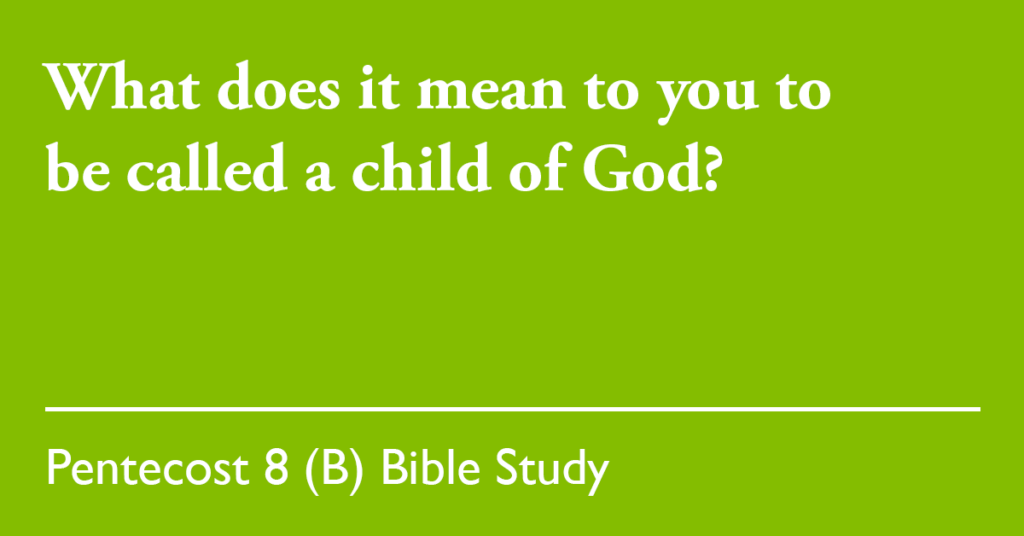This page is available in: Español
Bible Study: Pentecost 8 (B) – July 14, 2024
July 14, 2024
Note: During the 2024 Season after Pentecost, Sermons That Work will use Track 2 readings for sermons and Bible studies. Please consult our archives for many additional Track 1 resources from prior years.
RCL: Amos 7:7-15; Psalm 85:8-13; Ephesians 1:3-14; Mark 6:14-29

Amos 7:7-15
Amos, a herdsman, a dresser of sycamore trees, and, despite his protestations, a prophet, brings bad news from the Lord: Israel has been measured and tested with the plumb line and found wanting. You can understand the difficult position the priest is put in; Amaziah is bound to support God and the king both, and he finds it easier to send Amos away than to heed his warnings and condemn the king.
Perhaps to a less serious degree, this is a situation in which we might regularly find ourselves. When our allegiances to any temporal group – country, party, family – run up against our allegiances to God, it is very, very easy indeed to avoid that problem, shunt off or ignore anyone ringing alarm bells, and hope that God either forgives or forgets. But in doing so, we know that we are damaging our souls.
- Where have you seen a similar dynamic at play?
- Where else in scripture have you seen normal, everyday people being called by God to a new role?
Psalm 85:8-13
This psalm’s opening verses are different in tone, briefly laying out God’s mercy toward his people in history and praying for the same deliverance from both worldly and Godly wrath. The psalmist commits to listening to God’s (active) speech, dreaming of a world in which faithful people follow in God’s wake as truth, righteousness, prosperity, mercy, peace, and truth characterize their lives. What a day this will be! The times heralded by Amos’ provocative prophecy are over, and the people are handsomely rewarded for their faithfulness.
- Why do you think God cares about the righteousness of God’s people?
Ephesians 1:3-14
Continuing the theme of a loving God, both just and merciful, Paul expounds on the characteristics of our Lord: he is as loving as a parent, gracious, redemptive, forgiving, generous, wise, glorious, and more. And not only that – this gracious, redemptive, forgiving, generous, wise, and glorious God has freely chosen us as children. How surprising – the very architect of the universe, entirely of his own volition, has called you by name, called you a beloved child, marked you with the Holy Spirit, made you an heir. When next you feel despondent or hopeless, remember, even briefly, that you have been called and marked by the God of love. While that won’t solve everything, it will help keep things in perspective.
- What does it mean to you to be called a child of God?
- What responsibilities come when you’re named one of God’s heirs?
Mark 6:14-29
In relatively few verses, we get a masterclass in grotesque family dynamics. Herod, contrary to the law, weds his brother’s wife, Herodias. John the Baptist calls him out on the scandal, causing Herod some anxiety and Herodias some anger. Herod throws John in prison to limit John’s reach and assuage his wife. At a birthday party, Herod’s step-daughter, Salome, dances for him and the guests so well, that he feels obliged to offer her anything she wants. In consultation with her still-aggrieved mother, the daughter asks for the head of John the Baptist on a platter, which he obliges in order to save face with his party guests. God save us from these… unhealthy dynamics!
Fast forward some time: Herod, still likely wracked by fear and guilt from this episode, hears of Jesus, a wandering healer. He assumes that John has been resurrected and his life and power are back under threat. This sets the stage for future interactions between Jesus and the terrified, guilt-wracked, haunted Herod.
- Put yourself in the position of Herod. How do you feel when you hear about this Jesus working miracles among your people?
- When have you seen anger, wrath, and fear spin out of control?
This page is available in: Español
Don’t forget to subscribe to the Sermons That Work podcast to hear this sermon and more on your favorite podcasting app! Recordings are released the Thursday before each liturgical date.
Receive Free Weekly Sermons That Work Resources!
This page is available in: Español


